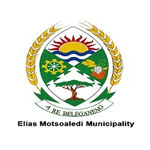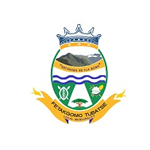Municipal Health Services
Section 32 of the National Health Act 61 of 2003 district mandates municipalities to provide municipal health services. Municipal health also known as Environmental Health services are services rendered by professionals governed by HPCSA to promote health and prevent diseases. Environmental Health is the public health field that monitors and addresses those physical, chemical, and biological factors that we might not have direct control over, but can impact our health anyway. We don’t always see it, but our environment is shaping our health every moment of every day. Where we live, what we eat, and how we interact with the world around us can tip the scales between healthy or not. That’s where environmental health professionals, policies, and programs all come into play. The following are municipal health services as implemented by Sekhukhune District Municipality:
-
1. Water quality monitoring
- Monitoring water quality through sampling and analysis, including mapping of water source.
- Enforcement of Acts and Regulations related to water quality management
- Ensuring a hygienically safe and adequate supply of potable water provision
- Ensuring the monitoring of effective waste water treatment and water pollution control, including the collection, treatment and safe disposal of sewage and surveillance of the quality of surface water for waterborne diseases.
-
2. Food control
- Ensuring compliance with R962 and issuing of certificates (COA) to food premises
- Carry out routine inspections of food handling in establishments (formal and Informal premises) to ensure compliance
- Enforcement of the food related provisions of the Foodstuffs, Cosmetics and Disinfectants Act, 1972 9Act No: 54 of 1972) and Regulations.
- Implement measures for the recall and/or condemnation and proper disposal of foodstuffs unfit, unwholesome for human consumption
- Promote the safe transportation, handling, storage and preparation of food stuffs used in Primary schools Nutrition Programme(PSNP), Prisons, Health establishments and ect
-
3. Waste management
- Monitoring of waste management systems- refuse, health care waste, hazardous waste and sewage.
- Advocate for proper sanitation.
- Ensuring that all types waste is stored, collected, removed and disposed off effectively and efficiently and that proper facilities and containers are provided.
- Compliance monitoring of garden refuse sites, refuse transfer sites, landfill sites, incinerators, recycling sites, sewerage and water works and the processes associated with such premises and instituting remedial and preventative measures.
- Ensuring safe usage of treated sewerage sludge and health safety of reclaimed waste
-
4. Health surveillance of premises
- Residential, Business and Public premises are regularly monitored to identify and evaluate health risks and hazards and institute remedial and preventative measures.
- Environmental Impact Health Assessments.
- Assessing aspects such as ventilation and indoor air quality, lighting, moisture –proofing, thermal quality, structural safety and floor space.
- Ensuring the abatement and prevention of any condition on any premises which is likely to constitute a nuisance or health hazard.
- Assessment of an overcrowded, dirty or unsatisfactory condition in any residential, commercial, industrial or other occupied premises.
-
5. Surveillance and prevention of communicable diseases, excluding immunisations
- Health and hygiene promotion aimed at prevention of environmentally induced and communicable diseases.
- Determination of sources of infection, contacts and carriers of diseases (case investigation) and reporting.
- Collection and analysis of appropriate epidemiological information on communicable diseases.
- Collaborate with other stakeholders and Departments regarding outbreaks.
- Taking of samples and specimens for analysis and further action if deemed necessary.
- Instituting remedial and preventative measures.
-
6. Vector control
- Identification of vectors, their habitats and breeding places and instituting remedial and preventative measures.
- Removal or remedying of conditions favouring the prevalence or increase of rodents, insects and vectors.
- Carrying out of routine surveillance actions and surveys to determine the prevalence of vectors.
- Instituting of eradication/control measures such as spraying of premises, baiting, fumigation, application of pesticides and placing of traps at premises.
-
7. Environmental pollution control
- Ensuring hygienic working, living and recreational environments.
- Identification of polluting agents and their sources i.e. air, land and water and instituting of corrective measures where such nuisances, risks or hazards occur.
- Approval of Environmental Health Impact reports and commenting on Environmental Impact Assessment applications
8. Disposal of the dead
- Controlling, restricting or prohibiting the business of an undertaker or embalmer, mortuaries and other places or facilities for the storage of dead bodies. Issuing certificates of Competency to Funeral Undertakers premises complying with legislation.
- Monitoring practices at cemeteries, crematoria and other facilities used for the disposal of dead bodies.
- Managing, controlling and monitoring exhumations and reburials or disposal of remains.
- Investigating and performing pauper burials
-
9. Chemical safety,
- Listing all operators, fumigation firms formal or informal, retail premises which deals with the(manufacturing, application, transportation and storage)
- Permitting and auditing of all hazardous substance premises and issuing of health certificates.
- Ensuring compliance and enforcement in accordance with Health and Safety act
- Facilitating advice, education and training of pesticides and or chemical safety.
-
10. AIR QUALITY MANAGEMENT
National Environmental Management: Air quality Act, Act 39 of 2004 mandates Metros and District Municipalities to:
- Protect and enhance the quality of air SA
- Provide reasonable measures for preventing pollution.
- Securing ecologically sustainable development while promoting justifiable economic and social development
That is done by providing the following functions:
Atmospheric emission licencing
Authorisation is required in order to operate any listed activity anywhere in the Republic if that activity appears on the national list, or anywhere in a province where the activity may be listed. The authorisation for the operation of a listed activity is gained through the atmospheric licensing process, described in Chapter 5 of the AQA. Some relevant excerpts are provided here: DEA as well as metropolitan and district municipalities are charged with implementing the atmospheric emission licensing system and must for this purpose perform the functions of licensing authority as set out in Chapter 5 of the AQA and other provisions of the AQA. Application for atmospheric emission licences and the procedure for licence applications are discussed in sections 37 and 38 of the AQA.
Compliance monitoring
The municipality AQO also has compliance monitoring and reporting requirements regarding AQMPs that are consistent with requirements at national and provincial levels. Compliance monitoring at municipal level deals specifically with AELs, and uses licences as the primary means to ensure compliance with ambient air quality standards. The Atmospheric Impact Reports are an additional means of monitoring compliance and can be requested of any individual that is under reasonable doubt of contravening the AQA or causing negative impacts, as well as within the context of a licensing process. In addition, the municipality are also responsible for compliance monitoring for dust generating activities as contemplated in the national Dust Control Regulations, as well as compliance monitoring with respect to any notice issued in terms of section 23 of AQA.
Ambient air quality monitoring
Sekhukhune district Municipality has a continuous ambient air monitoring station situated at Dilokong Hospital, it is measuring the following criteria pollutants Sulphur Dioxide, Carbon Monoxide, Nitrogen Oxides, Ozone and Particulate Matter 2.5 and 10. Ambient air monitoring is an integral part of an effective air quality management system. Reasons to collect such data include to:
- assess the extent of pollution;
- provide air pollution data to the general public in a timely manner;
- support implementation of air quality goals or standards;
- evaluate the effectiveness of emissions control strategies;
- provide information on air quality trends;
- provide data for the evaluation of air quality models; and
- support research (e.g., long-term studies of the health effects of air pollution).
Diesel vehicle testing
Mobile source emissions or emissions from vehicles are recognised as a significant source of pollution in urban environments.
- Testing of diesel vehicle on major roads in the district
- Issue fines/notice repair if the diesel vehicle in non-compliance
Noise pollution
- Identification and monitoring of sources and agents of noise pollution and instituting remedial or preventative measures.
- Measuring of ambient sound levels and noise levels.
- Outdoor and indoor measurements on a piece of land and in a room or enclosed space respectively.
- Law enforcement by issuing of notices/summons.
Awareness
Awareness-raising aims to bring about positive changes in air quality by voluntary rather than forced means. Improvements in public knowledge through environmental education, sharing of knowledge and experience, and access to information, can lead to voluntary changes that are often more sustainable than forced changes initiated by legislation. The district is involved in education programmes developed for primary and secondary schools taking into account the local context.
Complaints management
A complaints management system is an organised process for responding to, recording and using complaints to improve services to customers. Complaints are an important way for the management of an organisation to be accountable to the public, as well as providing valuable prompts to review organisational performance and the conduct of people that work within and for it.
- To resolves issues raised by a complainant in a timely and cost-effective way
- It provides information that can lead to improvements in service delivery; and
General duties
Environmental health complaints management
Awareness campaigns and education on environmental Issues
In so doing Sekhukhune District Municipality is upholding promises made in Section 24(b) of the Constitution which state all citizens to have a right to live in an environment that is not harmful to their health or well-being.





